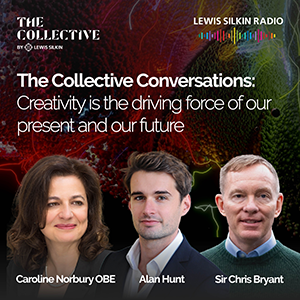“The UK’s Creative Industries are a global success story. Our creative content, products and services are world renowned, exercise significant soft power and deliver economic, social and health benefits to people and communities everywhere.”
The creative sector is critically important for the UK economy and its growth. Currently, the sector contributes £108 billion in gross value added (GVA) annually and employs one in five people in London and two million people across the UK. According to Creative UK, by 2025, with the right investment and support, the creative sector could contribute £132 billion in GVA for the UK’s economy (which is more than the financial services, insurance and pension industries combined) and create 300,000 jobs.
How do we achieve this growth? Well, the creative sector is wider than just art and music – it spans other industries, such as science, technology, and engineering. Indeed, in its policy paper on the Creative Industries Sector Vision, the Government reported that “the sector increasingly relies on a fusion of creative and STEM (science, technology, engineering and mathematics) skills that are often highly specialist, alongside commercial, practical and technical skills”. Accordingly, in order to see growth in the creative sector, we must invest in all of these skills and industries, as well as the traditional “arts”.
Sadly, the UK has sat on its laurels and other countries are catching up with our success. Investment has halved in the past decade, in part due to a loss of EU funding. However, the Government has proposed new initiatives, including the Creative Industries Sector Vision, the International Technology Strategy, and the Science and Technology Framework, which aim to invest in the UK’s creatives and innovators across all industries. A great example of how the Government is investing in collaboration across industries in order to grow the creative sector is evidenced by its investment of £75.6 million to build “the largest virtual production research and development network in Europe to put the UK at the forefront of advancements in visual effects, motion-capture technology, and AI for the screen industries and live performance”.
In addition, four new research and development facilities will be established to drive the next generation of screen technology and on-set virtual production, funded by an additional £63 million of new industry investment as part of UKRI’s Convergent Screen Technologies and performance in Realtime (CoSTAR) programme.
It is here – at the convergence of art, technology, and science – through the sharing of ideas and expertise between teams, that businesses can create a self-sustaining ecosystem which fosters creation and innovation. Because when different worlds collide, there’s an awfully big bang – and we can’t wait to hear it.
“Creativity is the driving force in innovation. It’s imperative that we prioritise and future-proof it, and in the face of challenges such as the ever-changing state of the nation, strategic investment in the creative industries is key to ensuring our continuing global success story.”
Alan Hunt, Co-Founder of The Collective by Lewis Silkin speaks to Caroline Norbury OBE, CEO of Creative UK and Sir Chris Bryant MP, Shadow Minister for Creative industries and Digital. Listen to the podcast here.
To view the full report, click here.



























